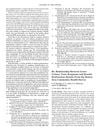44 citations,
September 2020 in “International Journal of Molecular Sciences” New treatments are needed for PCOS that target its genetic, hormonal, and metabolic causes.
 25 citations,
June 2017 in “Molecular and Cellular Endocrinology”
25 citations,
June 2017 in “Molecular and Cellular Endocrinology” Using anabolic androgenic steroids can cause serious, lasting health problems in many parts of the body.
 8 citations,
July 2014 in “General and Comparative Endocrinology”
8 citations,
July 2014 in “General and Comparative Endocrinology” Finasteride affects frog testes by increasing testosterone, decreasing 5α-DHT, and impacting genes related to reproduction and other functions.
 June 2008 in “The Journal of Urology”
June 2008 in “The Journal of Urology” Men with urinary symptoms are more likely to have erectile dysfunction, and there's a debate about research methods and authorship ethics.
 6 citations,
April 2019 in “Journal of Pediatric Endocrinology and Metabolism”
6 citations,
April 2019 in “Journal of Pediatric Endocrinology and Metabolism” Metformin improved menstrual cycle regularity and signs of hyperandrogenism in adolescent girls with type 1 diabetes but did not improve blood sugar control.
 30 citations,
July 2019 in “Endocrinology”
30 citations,
July 2019 in “Endocrinology” Certain HSD3B1 gene types are linked to worse prostate cancer outcomes and affect treatment response and other health conditions.
 April 2020 in “The FASEB Journal”
April 2020 in “The FASEB Journal” Surgical and chemical castration have varied effects on heart and brain inflammation and artery function in sick rats.
 May 2024 in “Journal of drug delivery and therapeutics”
May 2024 in “Journal of drug delivery and therapeutics” Women with PCOS have higher oxidative stress and hormone imbalances, suggesting managing oxidative stress could help.
 April 2020 in “The FASEB Journal”
April 2020 in “The FASEB Journal” Testosterone increases heart and blood pressure issues in rats with endotoxemia, and stopping testosterone production can reduce these problems.
January 2018 in “Medicinski pregled” Using high doses and multiple drugs with steroids is risky and should be prevented.
 January 2025 in “Journal of Clinical Medicine”
January 2025 in “Journal of Clinical Medicine” PCOS is the most common cause of hirsutism, and personalized treatment is important.
120 citations,
April 2019 in “The Journal of clinical investigation/The journal of clinical investigation” Both estrogens and androgens are important for health in both males and females.
 December 2023 in “Research in pharmacy”
December 2023 in “Research in pharmacy” Phytotherapeutic compounds and supplements can help manage Polycystic Ovarian Syndrome (PCOS).
 31 citations,
June 2015 in “British Journal of Dermatology”
31 citations,
June 2015 in “British Journal of Dermatology” Hormonal treatments are effective as a second-line option for moderate-to-severe acne in females, but should be used with caution due to health risks.
 30 citations,
January 2015 in “BioMed Research International”
30 citations,
January 2015 in “BioMed Research International” Continuous light exposure in rats leads to PCOS-like symptoms and suggests sleep habits might affect the disorder's development.
3 citations,
July 2015 in “Pediatrics in review” Precocious puberty is starting earlier due to factors like obesity and chemicals, with treatment focusing on preserving height and addressing social issues.
 3 citations,
March 2021 in “Journal of the European Academy of Dermatology and Venereology”
3 citations,
March 2021 in “Journal of the European Academy of Dermatology and Venereology” The letter is skeptical about the effectiveness of anti-androgen therapy for COVID-19 and calls for strong evidence from clinical trials.
 November 2023 in “JCEM Case Reports”
November 2023 in “JCEM Case Reports” A postmenopausal woman's excess male hormone symptoms improved after her ovaries were removed.
 August 2024 in “Aesthetic Plastic Surgery”
August 2024 in “Aesthetic Plastic Surgery” Exosome treatment safely increases hair density in male patients with androgenetic alopecia.
 4 citations,
August 2017 in “The Nurse Practitioner”
4 citations,
August 2017 in “The Nurse Practitioner” Secondary amenorrhea has many causes and requires thorough evaluation to treat and restore menstrual cycles.
 23 citations,
October 2015 in “Andrology”
23 citations,
October 2015 in “Andrology” New male hormonal contraceptives show promise but need more research on long-term effects and funding for larger trials.
 21 citations,
December 2007 in “Primary Care”
21 citations,
December 2007 in “Primary Care” Early diagnosis and treatment of PCOS is crucial to reduce emotional distress and health risks.
 11 citations,
July 2003 in “The Nurse practitioner”
11 citations,
July 2003 in “The Nurse practitioner” New treatments for PCOS focus on managing symptoms and improving fertility.
 1 citations,
October 2022 in “Adolescent Health, Medicine and Therapeutics”
1 citations,
October 2022 in “Adolescent Health, Medicine and Therapeutics” Gender-affirming therapy can cause skin issues like acne and hair loss in transgender adolescents, and more research is needed on its dermatological effects.
 21 citations,
April 2019 in “Endocrinology and Metabolism Clinics of North America”
21 citations,
April 2019 in “Endocrinology and Metabolism Clinics of North America” Transgender patients need proper skin care, especially when undergoing hormone treatments, to manage issues like acne and hair loss.
 12 citations,
July 2020 in “DOAJ (DOAJ: Directory of Open Access Journals)”
12 citations,
July 2020 in “DOAJ (DOAJ: Directory of Open Access Journals)” Men with hormonal imbalances similar to PCOS may have increased risk of metabolic and heart diseases.
 5 citations,
August 2018 in “Sexual Medicine Reviews”
5 citations,
August 2018 in “Sexual Medicine Reviews” 5α-Reductase inhibitors do not consistently increase testosterone levels in the blood.

The document concludes that hair loss in women can be treated with topical treatments or hormone therapy depending on the cause.
 18 citations,
January 2003 in “Gynecological Endocrinology”
18 citations,
January 2003 in “Gynecological Endocrinology” Low-dose finasteride effectively reduces hirsutism without serious side-effects.
 17 citations,
May 2021 in “Journal of Assisted Reproduction and Genetics”
17 citations,
May 2021 in “Journal of Assisted Reproduction and Genetics” COVID-19 may harm male fertility and damage the reproductive system.

























